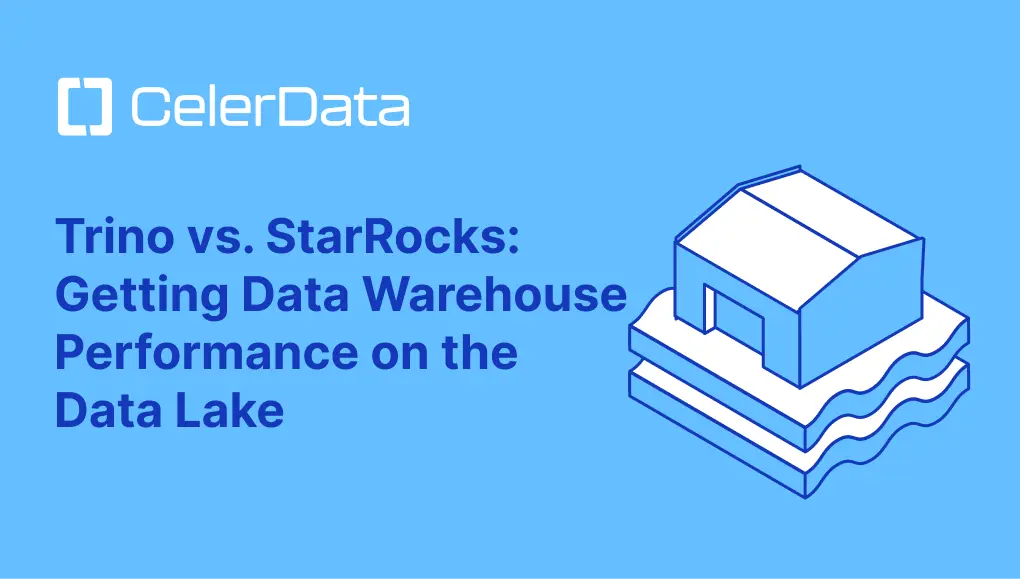
Apache Avro

Join StarRocks Community on Slack
Connect on SlackTABLE OF CONTENTS
Publish date: Jul 22, 2024 9:11:43 PM
What is Apache Avro?
Apache Avro is a data serialization framework developed by the Apache Software Foundation. Avro encodes data in a compact binary format and uses a schema to define the data structure. This approach ensures efficient data storage and transmission. Avro supports schema evolution, enabling backward and forward compatibility. This feature makes Avro ideal for big data processing and communication.
Doug Cutting, the father of Hadoop, developed Apache Avro. The project was announced in 2009. Avro aimed to address inefficiencies in existing serialization methods within the Hadoop ecosystem. Over the years, Avro has undergone significant optimizations. These include support for dynamic typing and cross-language code generation. Avro's design focuses on performance, flexibility, and ease of integration with big data tools.
Key Components
Schemas
Schemas play a crucial role in Apache Avro. A schema defines the structure of the data, specifying fields, data types, and relationships. Avro schemas are written in JSON format. This format ensures that the schema is both human-readable and machine-processable. The schema enables compatibility and evolution over time.
Data Types
Apache Avro supports a wide range of data types. These include primitive types like
int, string, and boolean. Avro also supports complex types such as record, array, and map. This rich set of data types allows Avro to handle diverse data structures efficiently.Serialization and Deserialization
Serialization converts data into a compact binary format for storage or transmission. Deserialization converts the binary data back into its original form. Apache Avro excels in both processes. Avro's binary format ensures fast and efficient serialization and deserialization. The schema stored alongside the data facilitates this process.
How Apache Avro Works
Schema Definition
The first step in using Apache Avro involves defining a schema. The schema specifies the structure of the data, including fields and data types. Writing the schema in JSON format ensures readability and compatibility. The schema serves as a blueprint for encoding and decoding data.
Data Encoding
During data encoding, Apache Avro converts the data into a compact binary format. This process uses the defined schema to ensure that the data adheres to the specified structure. The binary format reduces storage space and improves transmission speed.
Data Decoding
Data decoding involves converting the binary data back into its original form. Apache Avro uses the schema to interpret the binary data correctly. This process ensures that the decoded data matches the original structure and values.
Features of Apache Avro
Compact and Fast
Binary Data Format
Apache Avro encodes data in a compact binary format. This format significantly reduces storage space compared to text-based formats like JSON. The binary encoding ensures that data is stored efficiently, making it ideal for large-scale data processing.
Performance Benefits
The compact binary format of Apache Avro enhances performance. Faster read and write operations result from the reduced data size. This efficiency is crucial for real-time data processing and high-throughput applications. The performance benefits make Apache Avro a preferred choice for big data environments.
Rich Data Structures
Complex Data Types
Apache Avro supports a wide range of complex data types. These include
record, array, and map. The ability to handle complex data structures allows Apache Avro to manage diverse datasets effectively. This versatility makes it suitable for various data serialization needs.Nested Data Structures
Apache Avro excels in handling nested data structures. The framework can serialize and deserialize deeply nested records without compromising performance. The support for nested data structures ensures that Apache Avro can manage intricate data models efficiently.
Schema Evolution
Forward and Backward Compatibility
Apache Avro offers robust support for schema evolution. Forward and backward compatibility ensures that data serialized with an older schema can be read with a newer schema and vice versa. This feature is essential for maintaining data integrity over time.
Handling Schema Changes
Apache Avro simplifies the process of handling schema changes. The framework stores the schema alongside the data, enabling seamless updates. This design ensures that schema changes do not disrupt existing data pipelines. The ability to handle schema changes makes Apache Avro a flexible and reliable choice for dynamic data environments.
Use Cases of Apache Avro
Data Storage
Integration with Hadoop
Apache Avro plays a crucial role in data storage within the Hadoop ecosystem. Avro's compact binary format and schema management capabilities make it an ideal choice for efficient data serialization. Hadoop components use Avro to serialize and exchange data seamlessly. This integration ensures that large volumes of data are processed and stored efficiently.
Use in Data Lakes
Data lakes benefit significantly from Apache Avro's capabilities. Avro's ability to handle complex and nested data structures makes it suitable for diverse datasets. The compact binary format reduces storage space, making data lakes more efficient. Avro's schema evolution support ensures that data remains compatible over time, even as schemas change.
Data Exchange
Interoperability with Different Systems
Apache Avro excels in facilitating data exchange between different systems. The schema-based approach ensures that data adheres to a defined structure, enabling interoperability. Avro's support for multiple programming languages allows seamless communication between applications written in different languages. This interoperability is essential for modern, heterogeneous IT environments.
Use in Microservices
Microservices architectures benefit from using Apache Avro for data serialization. Avro's compact binary format ensures efficient data transmission between microservices. The schema management capabilities provide a clear contract for data exchange, reducing errors and improving reliability. Avro's support for schema evolution ensures that microservices can evolve independently without breaking compatibility.
Data Streaming
Integration with Apache Kafka
Apache Avro is a preferred choice for data streaming platforms like Apache Kafka. Avro's compact format and efficient serialization ensure high throughput and low latency. Kafka producers and consumers use Avro to encode and decode messages, ensuring compatibility as schemas evolve. This integration supports real-time stream processing, making Avro ideal for dynamic data environments.
Real-time Data Processing
Real-time data processing platforms leverage Apache Avro for its performance benefits. Avro's binary format ensures fast read and write operations, which are crucial for real-time analytics. The schema evolution support allows real-time systems to adapt to changing data structures without downtime. Avro's efficiency and flexibility make it a valuable tool for real-time data processing needs.
Advantages of Apache Avro
Efficiency
Reduced Storage Space
Apache Avro encodes data in a compact binary format. This encoding significantly reduces storage space compared to text-based formats. The reduced data size makes Apache Avro an ideal choice for large-scale data processing. Efficient storage leads to cost savings and improved resource utilization.
Faster Data Processing
The compact binary format of Apache Avro enhances data processing speed. Faster read and write operations result from the reduced data size. This efficiency is crucial for real-time data processing and high-throughput applications. Apache Avro's performance benefits make it a preferred choice for big data environments.
Flexibility
Support for Multiple Programming Languages
Apache Avro supports multiple programming languages, including Java, Python, and C++. This language-agnostic approach ensures seamless communication between applications written in different languages. The flexibility provided by Apache Avro simplifies integration in diverse IT environments.
Easy Integration with Big Data Tools
Apache Avro integrates easily with various big data tools like Hadoop, Spark, and Kafka. This compatibility allows organizations to leverage existing infrastructure without significant modifications. Apache Avro's ease of integration enhances its utility in complex data ecosystems.
Robustness
Error Handling
Apache Avro provides robust error handling mechanisms. The schema-based approach ensures that data adheres to a defined structure. This validation minimizes errors during serialization and deserialization. Apache Avro's error handling capabilities improve data reliability and integrity.
Data Integrity
Apache Avro ensures data integrity through its schema management capabilities. The schema defines the structure and type of data, preventing inconsistencies. Storing the schema alongside the data allows for accurate interpretation during decoding. Apache Avro's focus on data integrity makes it a reliable choice for critical data operations.
Comparing Apache Avro with Other Technologies
Apache Avro vs. Protocol Buffers
Key Differences
Apache Avro and Protocol Buffers both offer efficient data serialization. However, they differ in several fundamental aspects:
-
Schema Storage: Apache Avro stores the schema alongside the data, while Protocol Buffers require the schema to be known beforehand.
-
Data Encoding: Avro uses a compact binary format, similar to Protocol Buffers, but Avro's design focuses on dynamic typing and schema evolution.
-
Language Support: Both support multiple programming languages, but Protocol Buffers have more extensive language bindings.
-
Performance: Protocol Buffers often exhibit slightly better performance due to their optimized encoding and decoding mechanisms.
Use Case Scenarios
-
Big Data Processing: Apache Avro excels in environments where schema evolution and compatibility are critical, such as Hadoop ecosystems.
-
Microservices Communication: Protocol Buffers are preferred for microservices due to their performance and extensive language support.
-
Real-time Data Streaming: Avro integrates well with Kafka for real-time data streaming, providing efficient serialization and schema management.
Apache Avro vs. Thrift
Key Differences
Apache Avro and Thrift share similarities but also have distinct differences:
-
Schema Management: Avro stores the schema with the data, ensuring compatibility over time. Thrift requires separate schema files.
-
Data Encoding: Both use binary formats, but Avro focuses on schema evolution, while Thrift emphasizes RPC (Remote Procedure Call) capabilities.
-
Flexibility: Avro supports dynamic typing, whereas Thrift uses static typing, which can limit flexibility in certain scenarios.
-
Integration: Avro integrates seamlessly with big data tools like Hadoop and Kafka, while Thrift is more commonly used for RPC in distributed systems.
Use Case Scenarios
-
Data Warehousing: Apache Avro is ideal for data warehousing due to its schema evolution support and integration with Hadoop.
-
Service-Oriented Architectures: Thrift is suited for service-oriented architectures that require robust RPC mechanisms.
-
Cross-Language Data Exchange: Avro's dynamic typing and schema storage make it suitable for cross-language data exchange in heterogeneous environments.
Apache Avro vs. JSON
Key Differences
Apache Avro and JSON differ significantly in their approach to data serialization:
-
Data Format: Avro uses a compact binary format, whereas JSON is text-based and human-readable.
-
Schema: Avro requires a schema for data serialization, ensuring structure and type consistency. JSON does not enforce a schema, leading to potential inconsistencies.
-
Performance: Avro's binary format results in faster read and write operations compared to JSON's text-based format.
-
Storage Efficiency: Avro's compact format reduces storage space, making it more efficient for large-scale data processing.
Use Case Scenarios
-
Big Data Environments: Apache Avro is preferred in big data environments for its performance and storage efficiency.
-
Web APIs: JSON remains popular for web APIs due to its readability and ease of use.
-
Data Interchange: Avro's schema enforcement makes it suitable for data interchange between systems requiring strict data structure adherence.
Apache Avro plays a vital role in data serialization, especially in big data environments. Key features include its compact binary format and robust schema evolution support. These features ensure efficient data storage and seamless schema changes. Apache Avro integrates well with various big data tools, offering flexibility and performance benefits. Choosing Apache Avro for data serialization provides a reliable and efficient solution for diverse data processing needs.



.jpg)